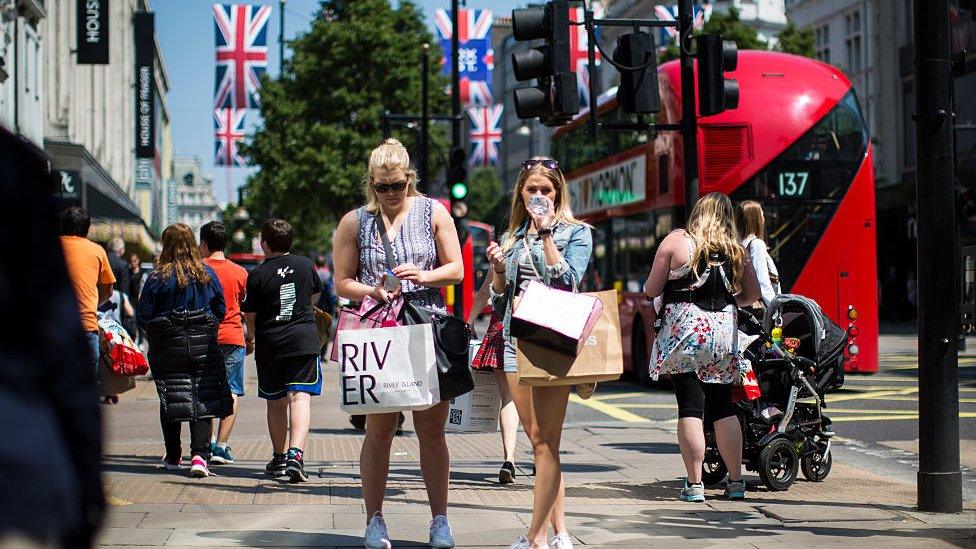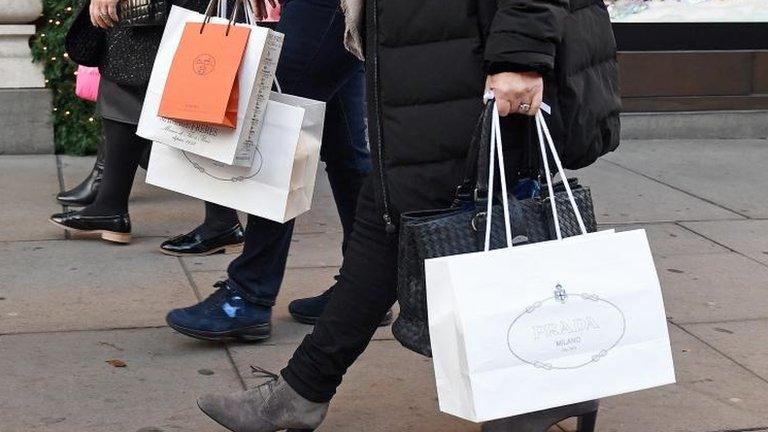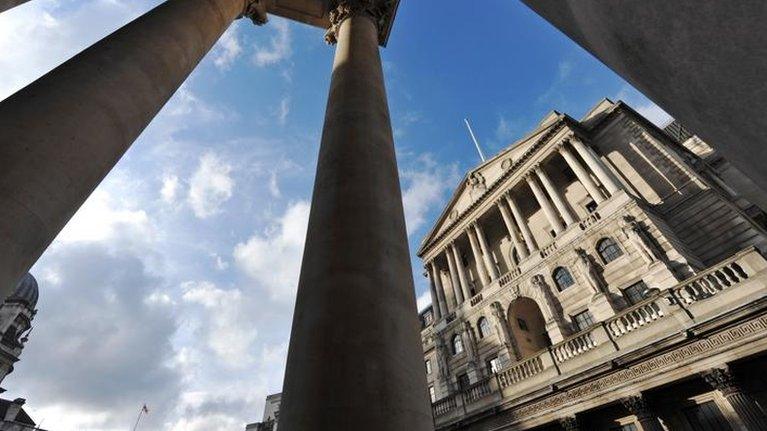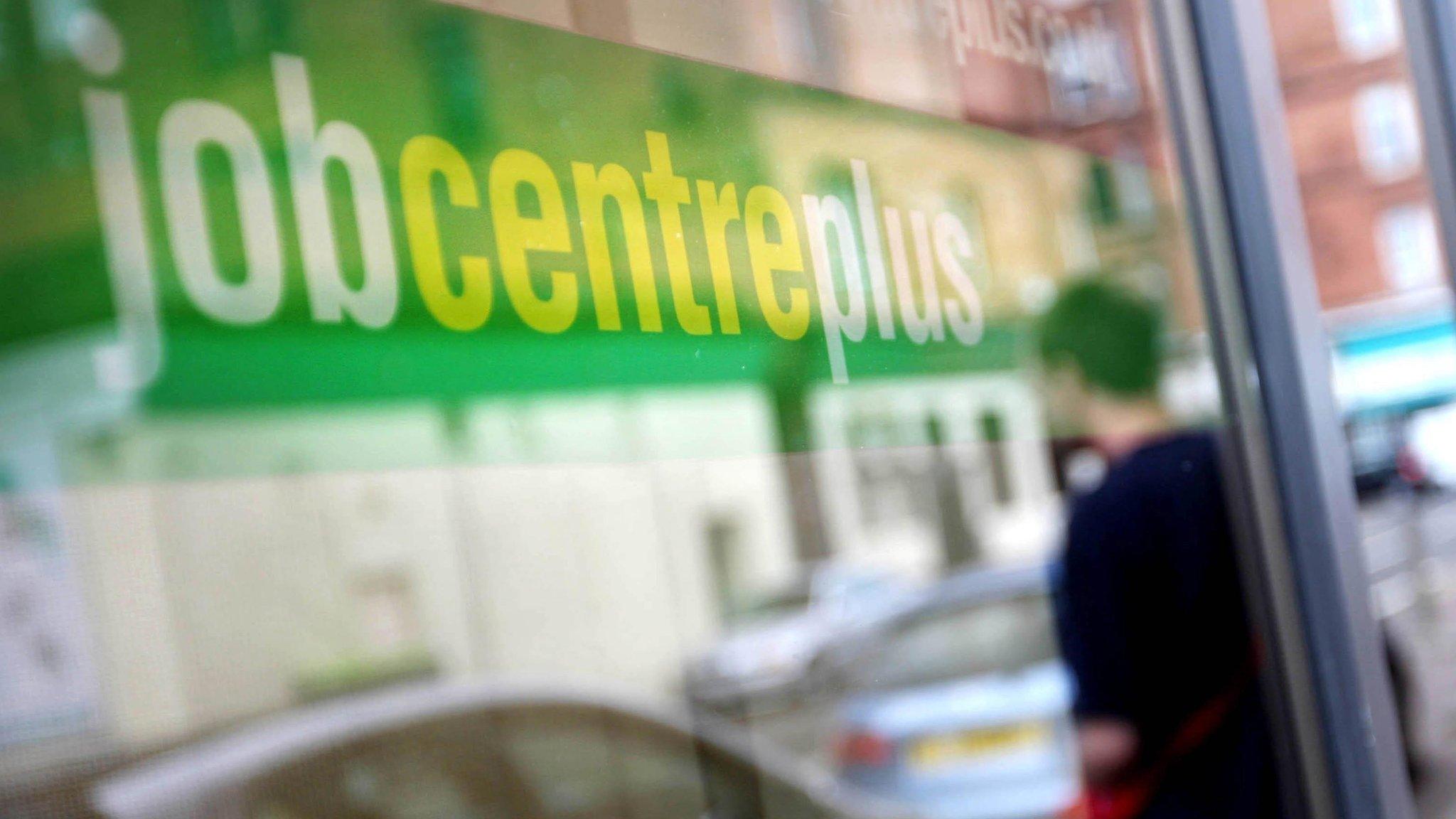'We are skint': Spending falls for first time in four years
- Published

We're buying fewer clothes and shoes but are eating out more, according to payment processing firm Visa.
Its latest survey, external shows household spending dipped for the first time in four years last month with families "starting to feel the squeeze" as higher living costs eat into pay.
"Let's face it, we are skint," says commentator Justin Urquhart-Stewart.
"Our card's maxed out, nothing in the savings account, pockets emptied out and nothing down the back of the sofa."
Visa said physical stores saw sales drop at their fastest pace for over five years in May, with sales down 5.3% year-on-year.
In contrast, spending at hotels and restaurants rose at an annual rate of 3.3%.
But even though so-called "experiences" spending rose, the figures suggest people are still being careful.
Josh Beer, from the Illustrious Pub Company, in Cambridgeshire, said: "More of our customers gravitated towards deals and offers in the past month, it feels as though they were biding their time, and cutting back until they became more confident in the economy."
The Visa figures show overall spending was 08% lower than in 2016, the first fall since September 2013.
Dilemma
The findings chime with official data from the Office for National Statistics, which shows that wage growth is falling back while inflation is rising, causing a squeeze on household incomes as they fail to keep pace with shop prices.
The latest official figures showed wage growth behind inflation for the first time since mid-2014, and the Bank of England has said it expects this to get worse.
Average weekly earnings excluding bonuses increased by 2.1% in the three months to March, while inflation rose by 2.3% in the year to March 2017.
"Now is starts to hurt, with inflation above lower pay levels we will all start to feel poorer. As the consumer we have been the driver of the UK economic engine - and now you can hear it start to splutter," adds Mr Urquhart-Stewart, co-founder of fund manager Seven Investment Management.
One of the chief reasons for inflation's rise is the steep fall in sterling since the UK voted to leave the European Union.
It is now worth between 11-15% less against the euro and the dollar, making anything we buy with our weaker currency more expensive.
That leaves shops with a dilemma, shred their often already paper-thin profit margins or raise prices.
- Published6 June 2017

- Published11 May 2017

- Published17 May 2017
